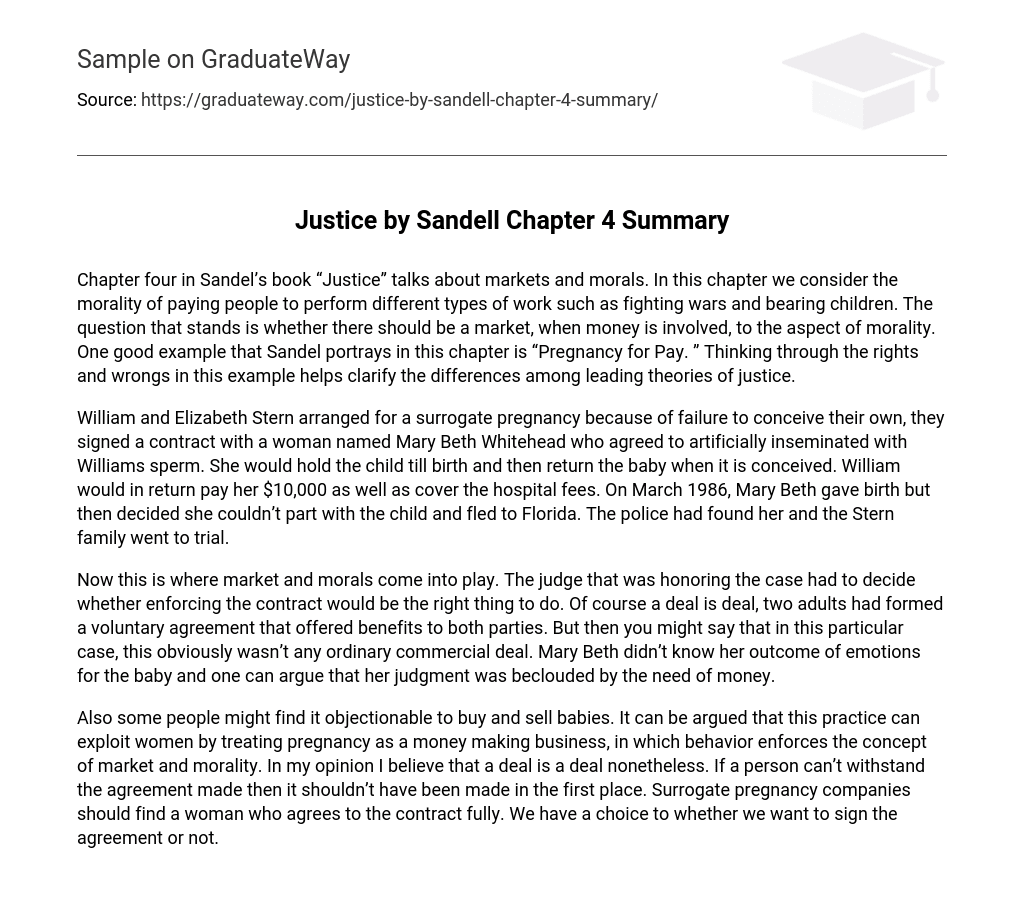Chapter four of Sandel’s book “Justice” discusses the relationship between markets and morals. This chapter examines the moral implications of putting a price on various types of work, such as participating in war or giving birth. The fundamental question is whether it is appropriate for morality to be influenced by monetary exchanges. Sandel provides an illustrative example in this chapter: “Pregnancy for Pay.” By analyzing the ethical considerations surrounding this example, we gain a better understanding of the distinctions between different theories of justice.
William and Elizabeth Stern hired Mary Beth Whitehead as a surrogate mother because they were unable to conceive. They made a contract in which Mary Beth agreed to be artificially inseminated with William’s sperm and carry the baby until birth. After the child was born in March 1986, Mary Beth changed her mind and ran away to Florida, refusing to give the baby back. The police located her, and the Stern family went to trial.
Now, the matter of market and morals arises. The judge presiding over the case had to determine if upholding the contract was morally justified. It is true that a deal is a deal – two consenting adults entered into a voluntary agreement that benefited them both. However, some may argue that this was not just an ordinary business deal. Mary Beth was uncertain about her feelings towards the baby and one could argue that her decision-making was influenced by her financial needs.
Also, there may be individuals who consider the act of purchasing and selling infants to be objectionable. One could argue that this practice potentially exploits women by commodifying pregnancy and perpetuating the blending of commerce and ethics. In my perspective, I firmly believe that a deal remains a deal regardless. If a person is unable to uphold the agreed-upon terms, then the agreement should not have been entered into initially. Companies facilitating surrogate pregnancies should select women who wholeheartedly consent to the contractual terms. Ultimately, we retain the freedom to decide whether or not to sign such agreements.





